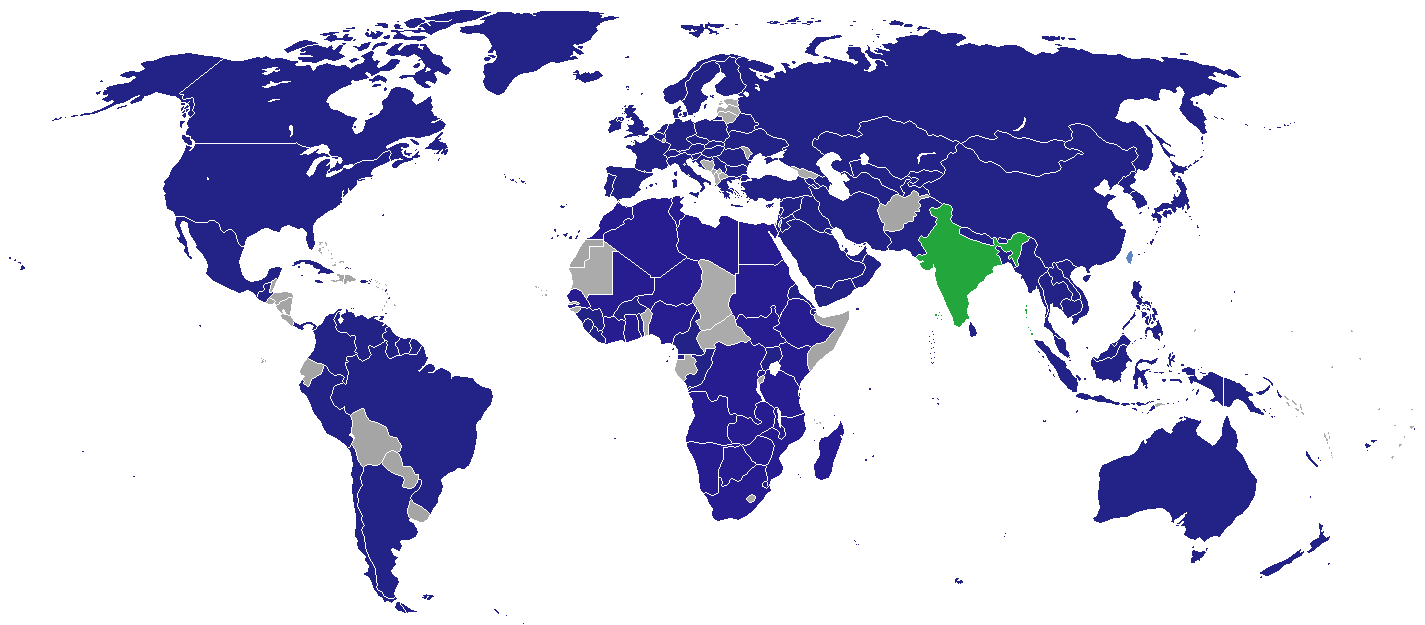The politics of foreign aid in India

As India reeled under the second wave of Covid-19, one fact became evident — it would not be left to struggle alone. Aid poured into India from over 40 nations. Countries sent oxygen, medical equipment, ventilators, and antiviral drugs. Offers of help came not just from expected corners such as the United States (US) and Russia, but also from unexpected sources such as China and Uzbekistan.
India’s acceptance of the aid (that continues to flow in) has been pointed out as a reversal of Indian policy, and an indication of the pandemic hole the Indian government has dug itself into. For many nationalists, acceptance of aid even brought back the humiliating memories of India’s forced reliance on food aid in the years after Independence. But both beliefs — that India does not accept aid, and that receiving foreign aid is a sign of weakness — are fallacies.
The myth of a self-reliant India refusing to accept foreign aid dates back to around 2004 when the Indian government officially stopped accepting foreign aid for disasters. That year, during the Indian Ocean tsunami, the government released $115 million for the National Contingency Fund. And India not only refused any humanitarian assistance from Japan, but also turned down emergency aid offers from the US and Israel. Prime Minister (PM) Manmohan Singh said, “We feel that we can cope with the situation on our own.”
This policy seemed to continue over the next decade. For example, in 2018, in the wake of the worst floods Kerala had faced in over 100 years, India again refused any external aid, including from one of its closest trade partners, the United Arab Emirates, which offered almost $100 million in aid, and was lauded by some in the Indian media for doing so.
But the fact is India never stopped accepting foreign aid, even for disaster relief. While aid data on India is spotty, by some accounts, India is believed to be one of the largest recipients of aid globally. What changed after 2004 were the terms of receiving aid. Aid was requested on a long-term basis (sometimes well after the period of the disaster), accepted only from G8 countries, from donors who would agree to give more than $25 million per year, or accepted by state governments rather than the Centre.
Consequently, while the number of donors decreased, the amount of aid stayed virtually the same. After the tsunami, for example, India requested and received long-term aid for rehabilitation from both the World Bank and the Asian Development Bank (ADB). It also accepted, a full year later, $3.1 million from the United States Agency for International Development (USAID)’s office of Foreign Disaster Assistance for emergency relief activities. This was used to fund, among other things, 5,000 Indian Navy personnel to deliver relief supplies. India also regularly accepts foreign assistance from multilateral organisations such as the Organisation for Economic Co-operation and Development (OECD) — India ranked first in the top 10 recipients of Official Development Assistance aid in 2018-19; the World Bank (in addition to favourable loans, the Narendra Modi government has requested and received aid for infrastructure projects such as Swachh Bharat); and increasingly, the ADB.
So why the brouhaha over openly accepting aid? On one hand, academic research shows a strong correlation between the politics of accepting foreign aid and the status that a country believes it should enjoy in international relations. This is more complex than simple claims of nationalism and nationalist pride. As has been shown, offering and accepting aid can be a demonstration of the “superiority and power” of the donor, and the “inferiority and powerlessness” of the recipient. Thus, foreign aid is sometimes seen as a tool that can shape countries’ reputations by conferring prestige on the donor and extracting a cost from the recipient.
Yet, on the other hand, arguably, the reputation of each country is built by the collective beliefs of a community of countries rather than a single element such as aid. Thus, the very act of being offered aid in a time of need can be seen as the outcome of an established reputation, and as an achievement of status rather than lack of it. This telling allows us to see the outpouring of international aid to India in a different light.
Particularly if we contrast it to Brazil, another country devastated by the pandemic, yet not the recipient of even a fraction of the aid and international sympathy that has been offered in spades to the Modi government. Of course, ideally, the institutional failure that existed in India with regard to the pandemic should never have been allowed to take place. But given that it did, the largesse offered by international society is a boon, not a curse.
Manjari Chatterjee Miller is associate professor, Pardee School, Boston University, director, BU Rising Powers Initiative, and research associate, University of Oxford.
Vidhu Priya Mukundan is a Masters student at the Pardee School, Boston University, and research assistant at the Global Development Policy Center, Boston University.
The views expressed are personal
https://www.hindustantimes.com/opinion/the-politics-of-foreign-aid-in-india-101624200153853.html
- Information Technology
- Office Equipment and Supplies
- Cars and Trucks
- Persons
- Books and Authors
- Tutorials
- Art
- Causes
- Crafts
- Dance
- Drinks
- Film
- Fitness
- Food
- Juegos
- Gardening
- Health
- Home
- Literature
- Music
- Networking
- Other
- Party
- Religion
- Shopping
- Sports
- Theater
- Wellness



